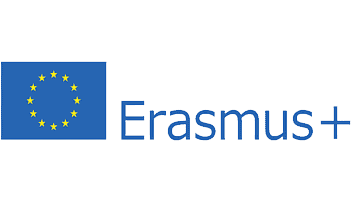Erasmus & Financing Opportunities
What is Erasmus? And why it's important?
Erasmus+ is a funding and exchange program in the field of education, training, youth, and sport, initiated by the European Union. It is one of the most important EU initiatives in the field of education and training and plays a significant role in promoting international mobility, intercultural collaboration, and the exchange of best practices within educational institutions and organizations across Europe.
The importance of the Erasmus+ program can be highlighted through the following aspects:
- International Mobility of Students and Academic Staff: Erasmus+ provides mobility opportunities for students, teachers, and academic staff from higher education, allowing them to study, teach, and train in other European countries. This contributes to the development of intercultural competencies, improvement of academic knowledge and skills, and increased internationalization of educational institutions.
- Promotion of Social Inclusion and Equal Opportunities: The Erasmus+ program supports projects aimed at access to education and training for disadvantaged and marginalized groups, as well as promoting diversity and inclusion in higher education and society as a whole.
- Development of Skills and Professional Capacities: Erasmus+ offers opportunities for internships, volunteering, and professional training abroad, facilitating the development of linguistic, interpersonal, and professional skills of participants and increasing their chances of integration into the labor market.
- Collaboration and Innovation in Education and Training: The Erasmus+ program promotes transnational cooperation between educational institutions, non-governmental organizations, businesses, and public authorities for the development and implementation of innovative projects in the field of education, training, and youth.
- Promotion of European Citizenship and Common Values: Through mobility experiences and international collaboration, Erasmus+ contributes to the promotion of European citizenship, intercultural dialogue, and common values of the European Union, such as solidarity, mutual respect, and cooperation among member states.
Therefore, Erasmus+ is considered an essential instrument in promoting European cooperation in the field of education, training, and youth, contributing to the personal and professional development of individuals and to the consolidation of social cohesion and European identity.

The general objective of the program is to support, through lifelong learning, the educational, personal, and professional development of individuals working in the fields of education, training, youth, and sport, both in Europe and beyond, thereby contributing to sustainable economic growth, the creation of quality jobs, social cohesion, the stimulation of innovation, and the consolidation of European identity and active citizenship. The program thus represents an essential instrument for the creation of a European education area and for supporting the implementation of European strategic cooperation in education and training, with its corresponding sectoral agendas. Additionally, the program is essential for promoting cooperation in the field of youth policy within the EU’s Youth Strategy 2019-2027, as well as for developing the European dimension in sport.
The program has the following specific objectives:
- to promote the mobility of individuals and groups for learning purposes, as well as cooperation, quality, inclusion, and equity, excellence, creativity, and innovation at the level of organizations and policies in the field of education and training;
- to promote mobility for non-formal and informal learning, active youth participation, as well as cooperation, quality, inclusion, creativity, and innovation at the level of youth organizations and policies;
- to promote the mobility of staff in the field of sport for learning purposes, as well as cooperation, quality, inclusion, creativity, and innovation at the level of sports organizations and policies.
The program has a global indicative financial package of over EUR 26 billion from the EU budget for a period of seven years (2021-2027). The annual budget is adopted by the budgetary authority.
The various stages for the adoption of the EU budget can be followed at:
Individuals constitute the main target population of the program. These individuals can participate in the program mainly through organizations, institutions, bodies, or groups that organize such activities. Therefore, access conditions to the program refer to the following two actors: “participants” (individuals participating in Erasmus+ project activities who may receive part of the European Union grant intended to cover their participation costs) and “participating organizations” (including informal groups of young people involved in an Erasmus+ project, either as applicants, partners, or freelance workers). Both for participants and participating organizations, participation conditions depend on the country in which they are established.
F.A.Q. HERA PROJECT
The Hera Project emerges as a strategic response to the multifaceted challenges faced by women entrepreneurs, exacerbated by the disproportionate impact of the COVID-19 pandemic.
The project aims to address local needs through strongly oriented educational solutions, leveraging interactive digital tools. The overarching goal is to boost competencies of adult education trainers and learners, specifically targeting women entrepreneurs with secondary education from rural areas, and ensure effective utilization of innovation capacity and skills.
- Increasing the competencies of adult education trainers and learners by giving them new training methods in the entrepreneurial sector;
- Increasing the supply of high-quality skills development programs in digital learning context that will suit female entrepreneurship needs and increase ability of organizations from the learning sector and adult education to realize their mission by providing access to the resources increase the probability of a successful innovation;
- Increasing the entrepreneurial women competencies and businesses from rural areas rate.
Our partners are from Romania, Germany, Italy and Croatia.
